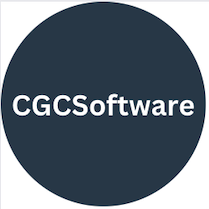Finding Your Passion
I recently watched a video by Sean McCabe about finding your passion (seanwes tv: How to Find Your Passion). In the video Sean says ‘we shouldn’t think of trying to find what you passion is as going off in another direction from what you are currently doing, but instead think of it as a starting line where exploring each idea is like moving forward from that starting line’.
He continues to say by moving forward off this starting line and exploring an idea that you feel might be what you are passionate about, you are discovering what really is your ‘passion’. You may find that after a while this new thing isn’t what you are passionate about, you may not like it, but at least you’ve explored the idea.
This idea really resonated with me because for the last few months I’ve been trying to decide whether to stick with the ‘technology stack’ I’ve been using for the last few years (Angular, Ionic and general front-end development) or explore the world of NodeJS, but the thing that has been holding me back is if I starting getting into a new stack, it might mean that the work opportunities open to me suffer.
As a contractor the amount of experience you have in a technology helps. When clients are looking for someone with x amount of experience and you don’t have that many years it does mean that you can’t be put forward for the role, the recruitment agency won’t put you forward for the role as they see you don’t have the require amount of experience. Even though you maybe the most knowledgeable developer on a new stack that you have only been using for the last year. CVs get scanned through every quickly and if you only have a few months experience you could find your application doesn’t go any further.
But I am really fascinated with NodeJS, I think the types of projects you can do with Node is amazing, (web, mobile, desktop, server side, even robots). The NodeJS community looks amazing, so helpful and welcoming to new Node developers.
Anyway after watching Sean’s video it made me think that by learning Node I’m not going off in another direction from what I’ve normally been doing, what I’ve been making my living off. Instead I learning, I’m moving forward.
I may find I don’t like building sites/apps with Node, I may also find that it makes me a better developer, it gives me more opportunities and more experience. Experience I can bring back into the mainstay of my career.
So if you have something you want to try, but you feel it is moving away in another direction from what you normally do, remember it really is just moving forward.
